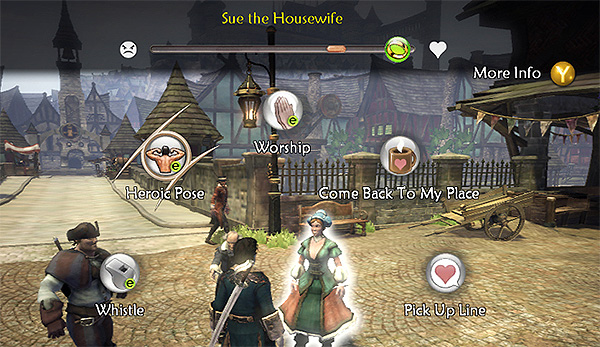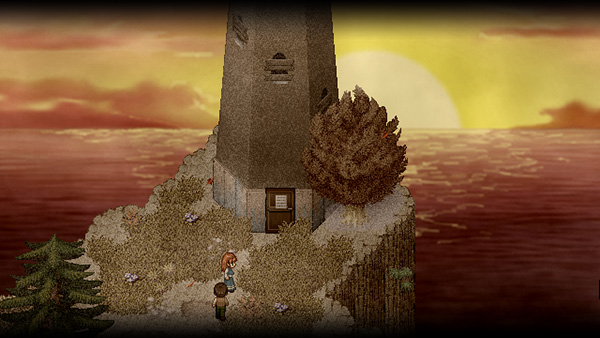Last updated on August 13, 2013
Why, Just… Why?
Around three thousand years ago, a Hebrew king wrote one of the greatest poems ever penned on the subject of intimacy. Since then, we have had millions of books, billions of songs, and thousands of movies made on the subject. But video games? Video games are known for explosions, boob-armor, and jiggle-physics…
In a quest for legitimization, game designers have been attempting to deal with love, relationships, and sex in a meaningful way. David Cage has made it his lifelong goal. But for me, I hadn’t noticed any meaningful groundbreaking until I started thinking about Kratos. Yes, that Kratos.
Les, the husband of my friend Nicole, calls God of War his favorite game. Nicole told me that I should play it. So I started it up, and found myself chopping-off Hydra heads in no time.
Next thing I know, my heartless protagonist woke up with a pair of topless females who will undoubtedly have serious back trouble (if they don’t already). Like sitting through a sex-scene with your parents, I just lowered my head and begrudged what I interpreted as pandering to teenage sexual fantasies. But I caught a fascinating plot point: Kratos found himself devoid of meaningful intimacy, thus founding his entire character arch.

The rest of Kratos’ character arch (okay, actually all of it) is nothing but violence, bloodshed, and sexual dissatisfaction. But for video games at large, something big was happening: the quest for intimacy was just getting started.
Intimacy Mini-Games
Truthfully, the video game quest for intimacy goes all the way back to the early 80s with text-based adventures and Japanese dating sims. But since I was little back then and none of that resonated with me personally, I’m gonna skip that stuff. Also, since I’m a good Christian boy, I would prefer that any conversation about sex and intimacy occurs in the context of marriage. So, Fable caught my attention when I hear it did courtship, marriage, and consummation in a spouse mini-game.
Fable’s spouse mini-game initiates by pressing the “flirting gesture” button when you’re around viable candidates. You can also do the “manly arm-pump”, or the “sexy hero pose.” If the object of your affection feels impressed, hearts flow out of their head. Gifts also find their use. By the time you gift and charm them all the way to a full love-meter, all you have to do is hand them a ring. And then you’re married. Just like real life!

Spouse in-tow, level-two of Fable’s intimacy quest begins. Flirt, gift, and “sexy hero pose” your spouse to whisk them to the bedroom. Fill your virtual spouse’s intimacy-meter (my term) and then you’ll see the screen fade to black. After selecting whether or not to use protection (Editor’s Note: If anyone can explain how that works in a medieval fantasy world, you’re smarter than I!), you’ll hear the voice actors do their best to convince you something interesting actually happened. When it fades back in, your avatar and your virtual spouse’s avatar appear, magically, in full dress! Cue pat commentary on your performance and/or how much they love you.
It’s at precisely this moment that How I Met Your Mother looks like Shakespeare.
Fable 2 and 3 added patty-cake, farts, and handshakes to the flirting toolset, thus contributing absolutely nothing to video games’ Intimacy Quest (although more to their humor…and/or childishness).
Cage On Intimacy
Around the time Fable was wrapping-up, David Cage quietly tinkered away at Quantic Dream on Fahrenheit (or Indigo Prophecy as it’s known in the States), trying to make the first artful video game love scene. The result? Two low-poly models doing naked gymnastics in a freezing cold subway terminal (ignoring the fact that one of the two characters was little more than a reanimated corpse). On the good side, that bit was nixed in the States and we received a fade-to-black instead.

In 2009, Cage tried again with Heavy Rain and got slightly-less-disgusting-but-equally-awkward results. Important note: just say no to quick-time-events.
So why do I bring up David Cage? At least he’s trying. He believes it’s possible to capture intimacy in a video game.
Listening: A New Gameplay Mechanic
Mass Effect added one critical element to the Intimacy Quest that shouldn’t be overlooked: listening. Yes, it’s possible for commander Shepard to bed inferior officers, but only after literally hours of listening to those characters. The best part? In the first Mass Effect, you couldn’t skip any of the conversations. You had to listen to them. Listening! What a novel concept!

Dragon Age tried to follow this tradition to some degree, but added some a gift system that reminded me of Fable. Yes, gifts can help if you’re listening to people, but when you have an “intimacy bar” on the character’s screen, it just reduces relationships to gaining love-experience-points. Also, it raises a serious question: should a player interact in a sort of role playing intimacy with in-game characters? Is that healthy?
Jumping In The Ring With Marital Breakdown
Façade (free) says a player can be a part of another couple’s pursuit of intimacy (or perhaps counter-pursuit). For whatever reason, Trip and Grace thought inviting you over to their place sounded like a good idea. As soon as you walk in the front door, it becomes apparent that they’re headed for divorce.
But guess what? You get to talk to them through it!

An advanced artificial intelligence system allows you to type-in whatever you want. Trip and Grace react dynamically. Try to change the subject when they start fighting, or feel free to encourage them to duke it out. But no matter the level of your diplomatic skills, you never make it too far past drinks.
You can try to talk about how they talk to one another, how they met, their jobs, and even try to talk about their sex life (not a good topic). But be respectful, because if you’re not, Trip will ask you to leave. Make a move on Grace and he’ll escort you out.
Typically when people talk about video games that let you play around with a bunch of moving parts, they don’t think of awkward dinner sandboxes. Sure there’s a ton of room for improvement. But the window it provides into marital conflict would be impossible this side of actually sitting down with a couple who hates one another (Editor’s Note: Theology Gaming does not recommend this method. Pursue at your own risk).
Helping A Couple Get Back Together
On the back of the box (an imaginary one), To the Moon is about adjusting memories for an elderly dying man. But at a deeper level, it’s about reclaiming intimacy with his wife who has since passed away.
Players learn all about Johnny’s life by diving into his memories, which mostly center around his his wife, River. For quite a nice lady, River makes a lot of seemingly-unreasonable decisions. She tells Johnny not to sell the house when she knows it’s the only way to pay for her life-threatening illness. She compulsively makes origami rabbits. And she carries a stuffed platypus with her the whole way through her life. She also doesn’t know how to respond to most social situations appropriately. Eventually you discover that she has Asperger’s (though the game never says so in certain terms). So much of the development of Johnny and River’s marriage centers on overcoming the complexities of disability and emotional trauma.

In the middle of Johnny’s story, we discover that we might have more in common with him than we expected . In Johnny’s childhood, he really got into Animorphs. This sets the timeline and implies that the elderly characters in To the Moon lived in our day and age. I saw it as an invitation to reflect on how I want to look back at my life when I grow old and lay in my death bed. How will I look back at my marriage?
It’s also worth noting that To the Moon remains the only video game that has effectively caused me to full-out cry.
To the Moon and Façade invite us to walk through difficult marriages, but their mechanics themselves probably don’t qualify as direct engagement with intimacy.
Walking Together
In Passage (free), all you can do is practice intimacy. Passage starts with a young male character on the left of the screen who starts walking and quickly finds himself with a young lady friend. And they walk for a very long time together, sometimes going up, other times going down, but always moving right along together. Then you start to notice the color in their hair fading, their postures starting to slouch, and the music becoming slower. They’re aging. But they’re still walking together.

There’s something amazing about old couples walking together, holding hands. They serve as a symbol of overcoming life’s most challenging moments together, developing a life of love and sacrifice. And here in Jason Rohrer’s five-minute game, you get a brief glimpse into the profound impact of a life walked together.
The Hope of Intimacy Quest
Since Passage’s release in 2007, ginormous game studios have crunched and racked their brains trying to capture intimacy and shove it in a video game bottle. The best example I can think of is Mass Effect and Dragon Age, which still come across as inappropriate with superior-officers sleeping with their crew. They have listening, but little else. To be clear, I don’t’ believe games with graphic sexual depiction like Fahrenheit, Heavy Rain, and The Witcher, add anything to the Intimacy Quest other than to show that studios are making an attempt at the subject of intimacy (you’ll have to forgive me for never deep-diving into The Witcher). In 2011, To the Moon showed me that the indie community is still working to invite players into marital conflict and the pursuit of making things work. I grew hopeful as the game illustrated the power of simply holding hands.
So please excuse me, I need to go for a walk with my wife.

